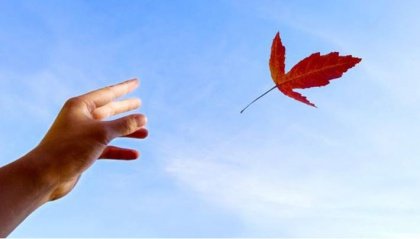Dream and Take Flight!

In 1970, Richard Bach published a novel that was not only one of the most beautiful in history, but also made many generations think: Jonathan Livingston Seagull.
It’s an epic tale of how a seagull learns about life, flying, and a song about the journey of self-improvement. It’s about not settling on being a seagull that just limits itself to flying and looking for food, but also enjoys it.
“We are free to go where we want and be who we are. The only true law is that which leads to freedom. There is no other”
-Jonathan Livingston Seagull
Jonathan Livingston Seagull was a seagull unlike the rest. He had a dream, a simple dream, but to the other seagulls it wasn’t normal. He wanted to fly, but not like a normal seagull. He wanted to do it in a special way, with stunts and tricks, to go up high, at night, to dive down.
For that he had to break the rules established by his flock, because Jonathan simply wanted to fly. He loved to fly on and on and not stick to what everyone else did, until he reached perfection.
Dreams are a part of human nature. Through them we better ourselves, push our limits and free our spirits from the chains of a “normal” life. Through our dreams we are free, we can reach the sky, touch beauty and bare the soul. Dreams are the engine behind human existence and its greatest accomplishments
Not every dream is the same. Some are unreachable, while others are reached by simply opening your eyes. They are all equally valid though some may be harder to achieve than others. It’s fair and human to ask about them, want to know others’ opinions or debate their possibilities.
But sometimes others’ opinions on our dreams can put us in a prison from which it’s very hard to escape.
Over the years there has been a never-ending debate between those who claim that everything is predetermined at birth and those who think that we write our own future and determine our own lives with every step we take. It’s an endless debate since it’s impossible, at least in this world, to find the answer.
Despite this unsolvable debate, it is possible for us to control what’s within our own reach. We can guide our steps and lead our lives towards the destiny we desire.
Dreaming is free and if we pay attention to the goals these dreams set for us, like a destiny we must fulfill, these dreams could help us achieve that little thing called “happiness”.

The finish line is as important as the journey it takes to get there. Enjoying the view while traveling to a desired destination. Enjoying someone who makes us consider the idea of a relationship. Watching a seed blossom into a beautiful fruit. The nap after a great meal. The little steps taken towards a goal no one would have bet on.
Enjoying everyday moments is essential. Because if you don’t learn to enjoy the little things, see them, bask in their beauty, what’s the point of enjoying something far and distant?
Enjoying these moments will help you avoid the frustration of not reaching some goals, because you can at least say “I tried.” Someone once said they dreamed of going to the moon and nearly everyone told them it was impossible, that they’d never do it, that they should stick to more normal things and stop dreaming.
A lot of people had that dream. Those dreamers didn’t have it easy, since there were always people willing to cut off their wings. “Don’t think about that,” “Focus on something real,” “Grow up already,” “Work and stop dreaming,” “It’s just a fairytale,” and many other things….Sound familiar?
Thanks to persistence, that dream became more and more real until one day in 1969 Neil Armstrong said: “That’s one small step for man, one giant leap for mankind.”
We all set goals, some they we reach and others we don’t. Let them inspire you and fill up the holes in your dreams. Don’t let other people’s opinions overshadow, limit, erase or cancel out your dreams.
Jonathan Livingston Seagull taught us that there are no limits to our dreams. And be wary of your fears, they love to steal dreams.
Fly, seagull, fly. Let your dreams fly.
In 1970, Richard Bach published a novel that was not only one of the most beautiful in history, but also made many generations think: Jonathan Livingston Seagull.
It’s an epic tale of how a seagull learns about life, flying, and a song about the journey of self-improvement. It’s about not settling on being a seagull that just limits itself to flying and looking for food, but also enjoys it.
“We are free to go where we want and be who we are. The only true law is that which leads to freedom. There is no other”
-Jonathan Livingston Seagull
Jonathan Livingston Seagull was a seagull unlike the rest. He had a dream, a simple dream, but to the other seagulls it wasn’t normal. He wanted to fly, but not like a normal seagull. He wanted to do it in a special way, with stunts and tricks, to go up high, at night, to dive down.
For that he had to break the rules established by his flock, because Jonathan simply wanted to fly. He loved to fly on and on and not stick to what everyone else did, until he reached perfection.
Dreams are a part of human nature. Through them we better ourselves, push our limits and free our spirits from the chains of a “normal” life. Through our dreams we are free, we can reach the sky, touch beauty and bare the soul. Dreams are the engine behind human existence and its greatest accomplishments
Not every dream is the same. Some are unreachable, while others are reached by simply opening your eyes. They are all equally valid though some may be harder to achieve than others. It’s fair and human to ask about them, want to know others’ opinions or debate their possibilities.
But sometimes others’ opinions on our dreams can put us in a prison from which it’s very hard to escape.
Over the years there has been a never-ending debate between those who claim that everything is predetermined at birth and those who think that we write our own future and determine our own lives with every step we take. It’s an endless debate since it’s impossible, at least in this world, to find the answer.
Despite this unsolvable debate, it is possible for us to control what’s within our own reach. We can guide our steps and lead our lives towards the destiny we desire.
Dreaming is free and if we pay attention to the goals these dreams set for us, like a destiny we must fulfill, these dreams could help us achieve that little thing called “happiness”.

The finish line is as important as the journey it takes to get there. Enjoying the view while traveling to a desired destination. Enjoying someone who makes us consider the idea of a relationship. Watching a seed blossom into a beautiful fruit. The nap after a great meal. The little steps taken towards a goal no one would have bet on.
Enjoying everyday moments is essential. Because if you don’t learn to enjoy the little things, see them, bask in their beauty, what’s the point of enjoying something far and distant?
Enjoying these moments will help you avoid the frustration of not reaching some goals, because you can at least say “I tried.” Someone once said they dreamed of going to the moon and nearly everyone told them it was impossible, that they’d never do it, that they should stick to more normal things and stop dreaming.
A lot of people had that dream. Those dreamers didn’t have it easy, since there were always people willing to cut off their wings. “Don’t think about that,” “Focus on something real,” “Grow up already,” “Work and stop dreaming,” “It’s just a fairytale,” and many other things….Sound familiar?
Thanks to persistence, that dream became more and more real until one day in 1969 Neil Armstrong said: “That’s one small step for man, one giant leap for mankind.”
We all set goals, some they we reach and others we don’t. Let them inspire you and fill up the holes in your dreams. Don’t let other people’s opinions overshadow, limit, erase or cancel out your dreams.
Jonathan Livingston Seagull taught us that there are no limits to our dreams. And be wary of your fears, they love to steal dreams.
Fly, seagull, fly. Let your dreams fly.
This text is provided for informational purposes only and does not replace consultation with a professional. If in doubt, consult your specialist.







